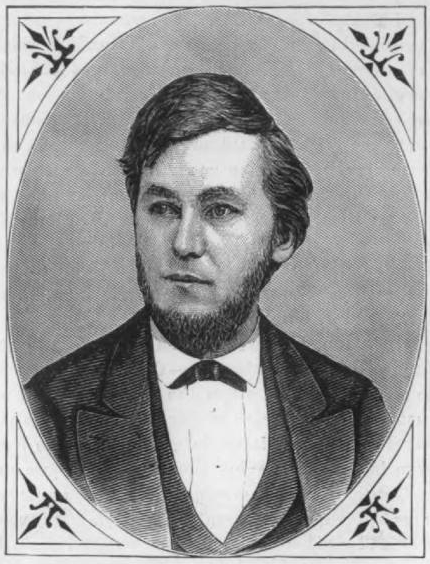James Thomas Edwards
James Thomas Edwards was born on January 6, 1838, in Barnegat, New Jersey, to Job and Susan Edwards. Her father was a minister who owned $4,900 of real estate and $3,900 of personal property by 1860. He grew up and attended school in Barnegat, and he graduated from Wesleyan University in 1860. He spent the next two years teaching in New York and Rhode Island. He married Emma Baker on July 10, 1862, and they had at least three children: Grace, born around 1864; Laura, born around 1868; and Florence, born around 1876.
In October 1862, he received a commission as a 1st lieutenant in Company K of the 11th Rhode Island Infantry. The regiment helped defend Washington, D.C., and he resigned on March 26, 1863.
He settled in East Greenwich, Rhode Island, after leaving the army, and he worked as a school principal. He supported the Republican Party, and he served three terms as a state senator in the 1860s. According to an early biographer, he “took an active part in the discussion of the fifteenth amendment,” and delivered speeches on the “just limits of the pardoning power.” He served as a presidential elector in 1868.
He moved to Randolph, New York, around 1870, and he served as president of the Chamberlain Institute and Female College. In the early 1890s, he was elected to the New York state senate, and he served as chairman of the committees on education and railroads. He championed bills to fund public colleges and libraries, and he supported women’s right to vote for school commissioners. In 1893, he became principal of the McDonogh Institute near Baltimore, Maryland. He worked there for the next five years. He died in Randolph, New York, on August 20, 1914.
Image: James T. Edwards (courtesy Wikicommons)
DATABASE CONTENT
| (4791) | Edwards, James Thomas | 1838-01-06 | 1914-08-20 |
- Conflict Side: Union
- Role: Soldier
- Rank in: 1st Lieutenant
- Rank out: 1st Lieutenant
- Rank highest: 1st Lieutenant
- Gender: Male
- Race: White
Documents - Records: 1
- (13451) [writer] ~ James T. Edwards to Edwin Metcalf, 22 December 1862
Places - Records: 2
Regiments - Records: 1
- (961) [officer] [K] ~ 11th Rhode Island Infantry
Groups - Records: 1
- (3) [politician] ~ Republican Party
SOURCES
1850, 1860, and 1880 United States Federal Censuses, available from Ancestry.com; Civil War Soldier Records and Profiles, 1861-1865, available from Ancestry.com; School Catalogs, 1765-1935, available from Ancestry.com; New York Death Index, 1880-1956, available from Ancestry.com; The National Cyclopaedia of American Biography, Vol. 9 (n.p.: James T. White & Company, 1899); “James Thoms Edwards” Wikipedia profile, available from https://en.wikipedia.org/wiki/James_T._Edwards





